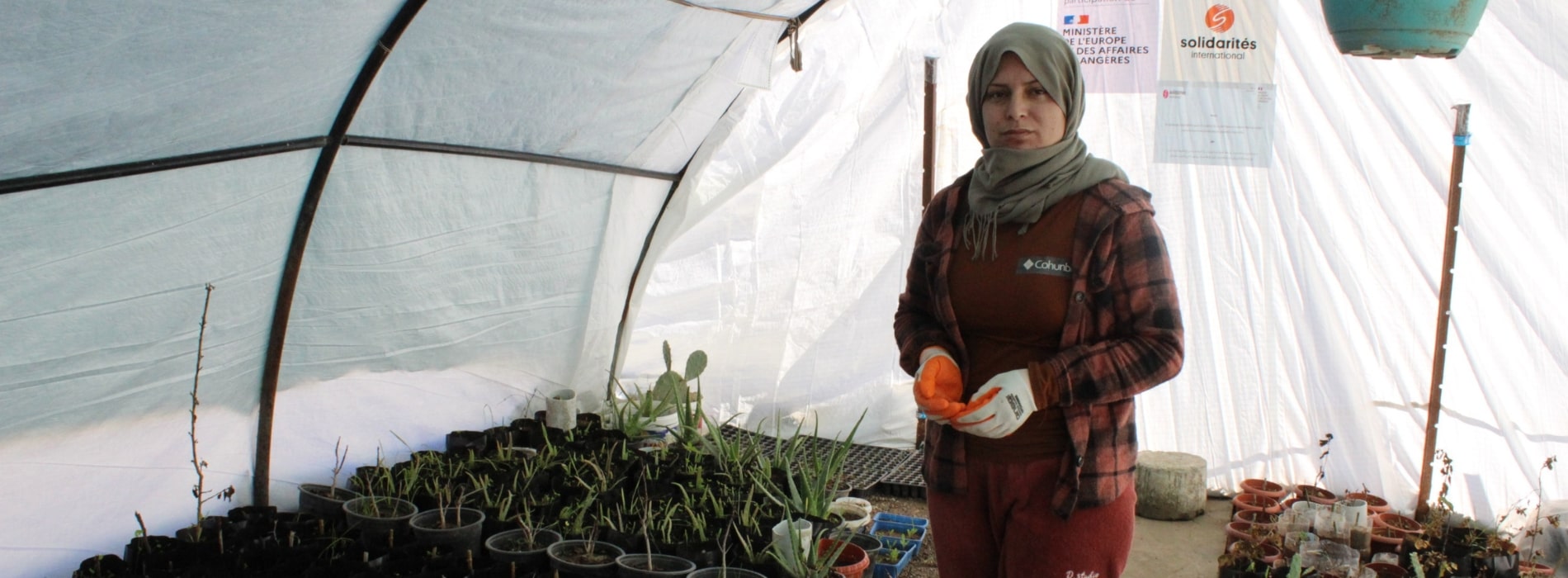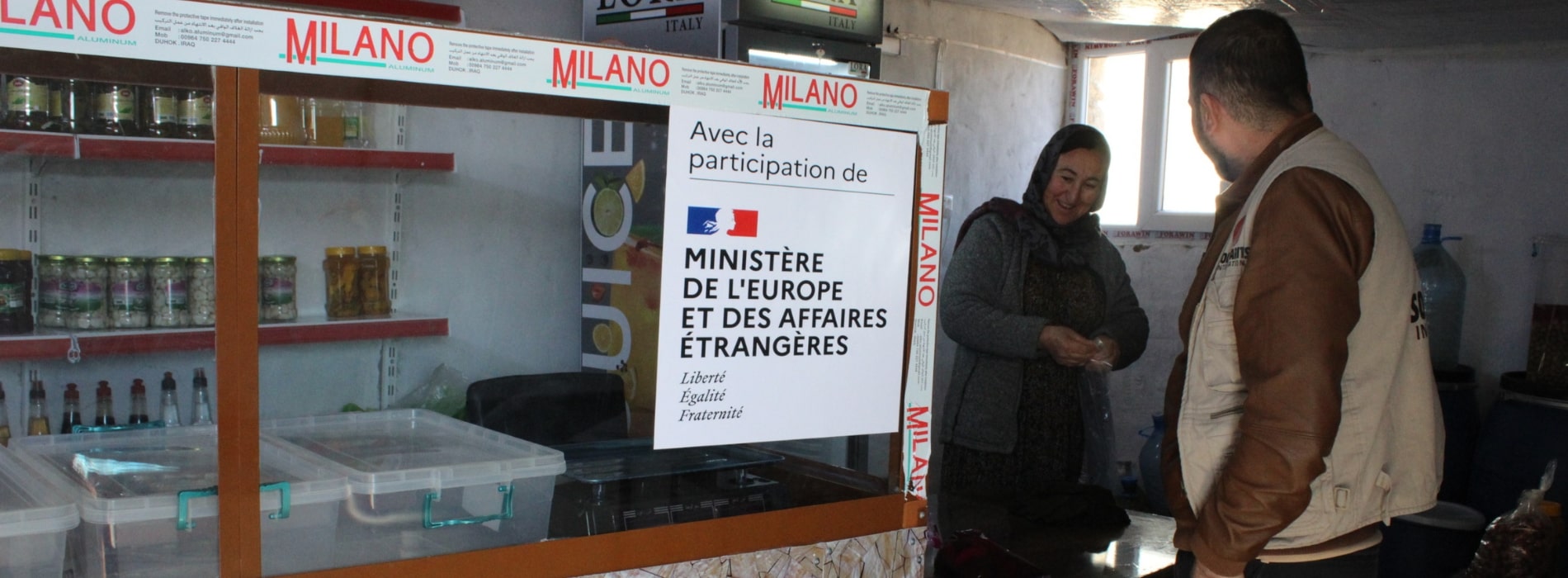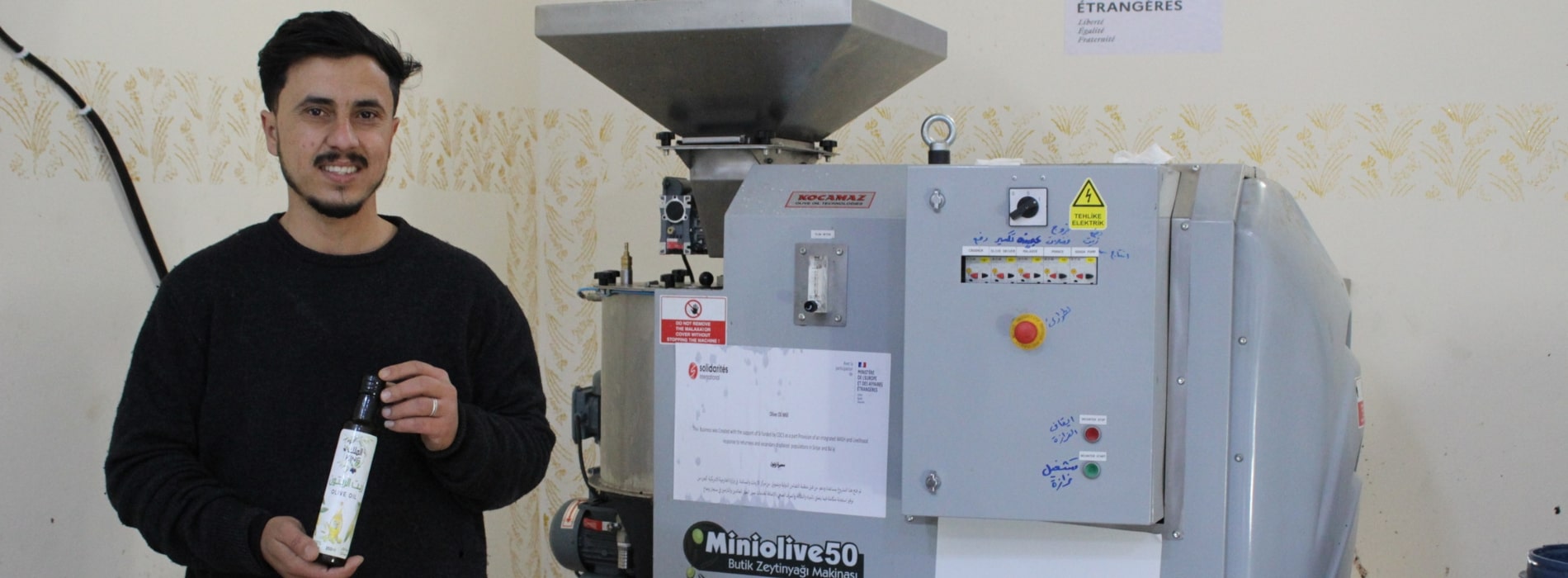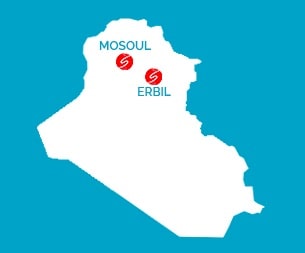Five years after the end of the conflict against the Islamic State (EI), Iraq is suffering the consequences of decades of war and political instability, while facing the worst drought in its history. In Sinjar territory, the population, mostly dependent on agricultural activity, is on the front lines. To support the revival of the economy, SOLIDARITÉS INTERNATIONAL has launched a project to support agricultural enterprises.
MULTIDIMENSIONAL CRISIS
Iraq faces a multidimensional and complex crisis combining security tensions, political, economic and social risks. Although the fightings against the Islamic State (IS) ended in 2017, internal and international tensions persist in the country.
A situation that has plagued the country already weakened economically by two years of COVID19 pandemic and inflation on the cost of basic foodstuffs related to the war in Ukraine, such as oil, lentils and rice. In addition, as the demographic curve continues to grow, figures indicate an increase in poverty and unemployment in Iraq.
The population has also been facing major environmental changes for several years, manifested in increased dust storms, decreased rainfall and reduced water inflow to rivers. Increased water scarcity is leading to a drop in agricultural production, depriving many families of their source of income.
This water crisis exacerbates the vulnerabilities that the population already faces: difficulties in providing for themselves or in accessing health services, education, shelter or housing.
SINJAR AT THE CENTER OF ATTENTION
Today, as tensions persist in Iraq, it is in the disputed territory of Sinjar that conflicts are concentrated. A series of armed actors have emerged in recent years, vying for control of the border area and directly threatening civilians. Nearly 70 percent of Sinjar’s population are still displaced.
Iraq
Context and action- 43.5 million inhabitants
- 121st out of 191 countries on the Human Development Index
- 27.749 helped people
For those who have remained or returned to the area, which heavily relies on small-scale agriculture and seasonal work, challenges are growing. The systematic destruction of water systems, land, and tools by the EI, as well as prolonged displacement, has had a significant impact on the incomes of returning families since 2020. Young children often have very limited access to school.

In addition, the economic development of these populations is hampered by inter-communal conflicts and environmental shocks. In Sinjar, factories, mainly focused on food production, did not withstand the EI invasion of the region. Destroyed, they were forced to close or abandon.
SUPPORTING AGRICULTURAL ENTERPRISES
In order to support the recovery of the agricultural sector (the first sector of employment in the region in rural areas), SOLIDARITÉS INTERNATIONAL has been providing assistance to 16 agricultural enterprises. A project funded by the Crisis and Support Center (CDCS).

The goal? To support the main agricultural value chains in Sinjar (such as poultry breeding, olive production or honey harvesting) through capacity building of agricultural actors as well as the development of links between them, thus revitalizing the local economy.
“Before the project, I was unemployed and at home. Thanks to the funding I received from SOLIDARITÉS INTERNATIONAL, I was able to buy supplies and create my business from scratch,” explains one of the project’s beneficiaries.

Through various training courses, financial support, and personalized advice and guidance, SOLIDARITÉS INTERNATIONAL aims to revive, develop the economic activity and make it sustainable not only for entrepreneurs but also for local actors in order to enable them to implement sustainable and environmentally friendly agricultural solutions.
© Laure LARROQUETT

